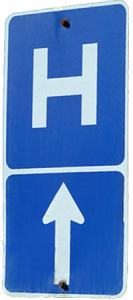Have You Had ECT? Help Others and Tell Me Where
As many of you know I’m writing a book on electroconvulsive therapy (ECT). This book will hopefully answer all the questions a person might have before undergoing ECT treatment as well as share with them my personal experience and the experience of others.
And I’ve decided to include, at the back of the book a list of hospitals that offer ECT to help people who want the treatment with a starting point on how to get it.
There’s just one problem – there’s no central repository on who offers ECT treatment.
Please Help Me with the List of Hospitals that Offer ECT
So I’m asking for your help. If you know of a facility that offers ECT, please let me know in the comments below and I’ll add it to the list. You’ll be helping me and helping others as well. Please include hospitals in Canada and the US.
And, of course, if you have any questions about ECT, also feel free to comment on those and I’ll make sure the answers are here and in the book.
Thanks.
Read More











Recent Comments